I want you to encounter it at least once in your life.
Miraculous top quality Japanese monofloral nectar.
We have a network of apiaries in Japan
bee professionals who have been supplying bees for pollination and cross pollination for many years.
We are proud to share with you a rare and miraculous top-quality Japanese monofloral nectar.
What is Japanese monofloral honey?
Honey collected during a period of concentration on a single flower and sold under a specific name is called monofloral honey. Even though it is a monofloral honey, it is based on nectar from flowers that are indicated in a range of 50~70% because not all bees concentrate on that flower and nectar from other flowers is also mixed in at the beginning and end of blooming. Among them, honey collected in Japan is defined as Japanese monofloral nectar.
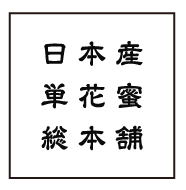

If there are no more bees on the planet, in four years the human race will be extinct.
If there were no more bees on the planet, the human race would be extinct in four years,” said Einstein. In 2011, the United Nations Environment Programme (UNEP) announced that “Of the 100 crop species that account for 90% of the world’s food, bees are responsible for 70% of it. In 2011, the United Nations Environment Programme reported, “Of the 100 crop species that account for 90% of the world’s food, 70% are pollinated by bees. bees pollinate 70% of the 100 crop species that account for 90% of the world’s food. The bees themselves are a great benefit to humankind. The work of bees itself is of great benefit to humankind. My father was the first in Japan to introduce The bees are used as pollinators for pollination. This led to the development of crops that required bee cross pollination. This made it possible to produce crops that require honeybee cross pollination anywhere in Japan.
A little miracle for you
Honey is said to be the only food produced by insects. A single bee weighing just 0.09 grams A single honey bee weighing just 0.09 grams ventures out in a world 5 kilometers in diameter in search of nectar. The honey bee is said to be the food produced by the insects. In his short life, a honey bee travels 1,000 kilometers to visit more than 10,000 flowers. thousands of flowers and obtains less than a teaspoon of honey. The bees fly 1,000 kilometers over their short lifetime, visiting more than 10,000 flowers. The bees visit about 4,000 species of plants in the world and 600 species in Japan. In Japan, there are more than 600 species. In Japan, there are more than 600 species. Imported honey accounts for about 95% of domestic honey distribution, while Japanese honey accounts for only 5%. In addition, only 5% of honey is produced in Japan. Japanese monofloral honey is said to be only 1/600th of the total amount of honey produced in Japan. Japanese monofloral honey is said to be only 1/600th of the total. We offer only the best quality, carefully selected and rare Japanese monofloral honey. We offer only the best and most carefully selected Japanese monofloral honey.
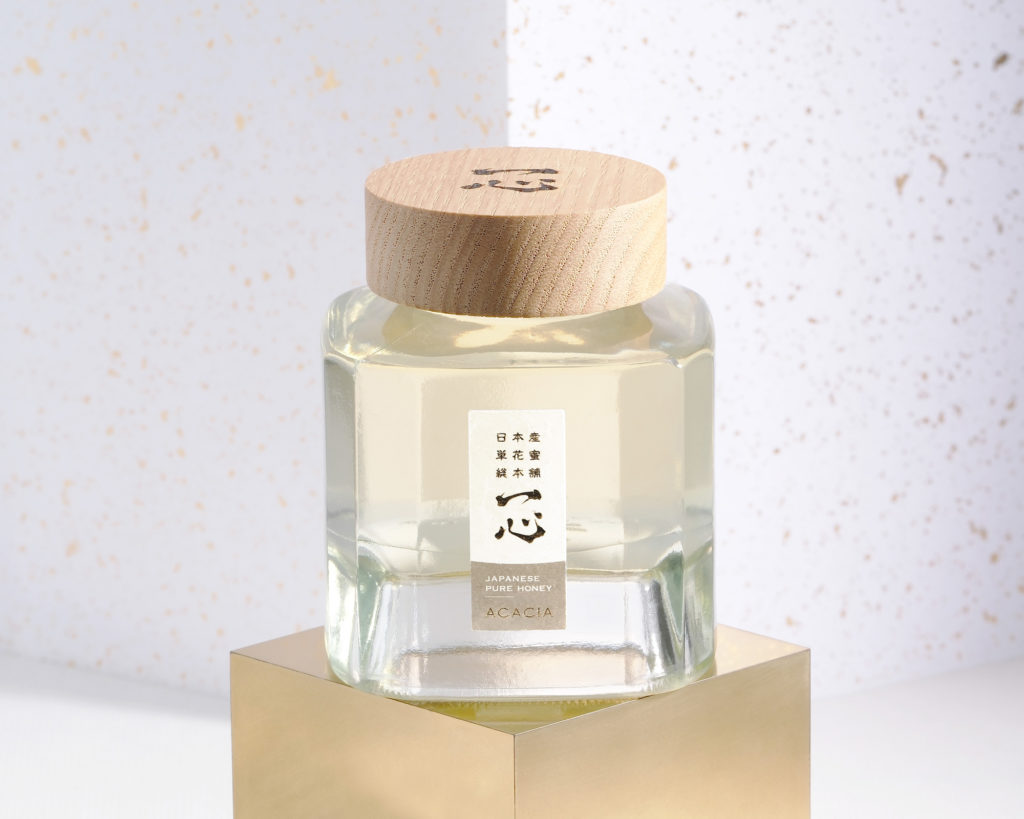
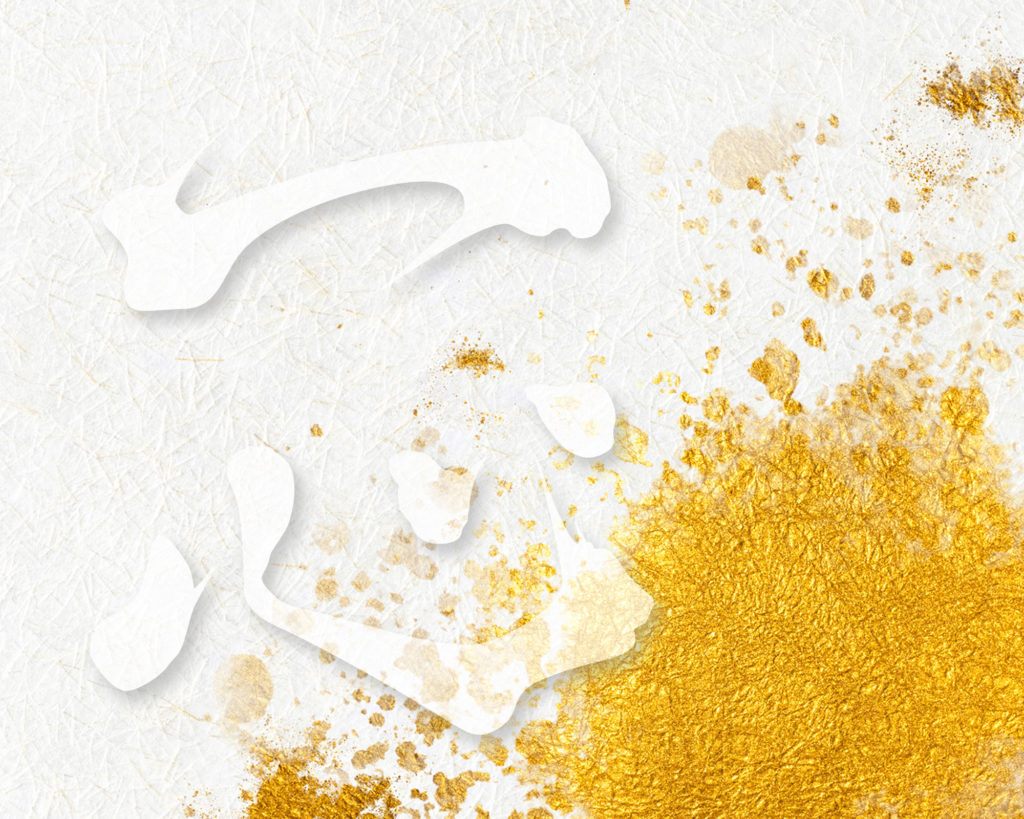
I want to see you
I want to meet you
I could meet you
We created the brand “Isshin” to deliver to you the miracles we have encountered in our search for truly delicious honey.
We would be happy if we could share our happiness with as many people as possible through Isshin’s carefully selected honey.

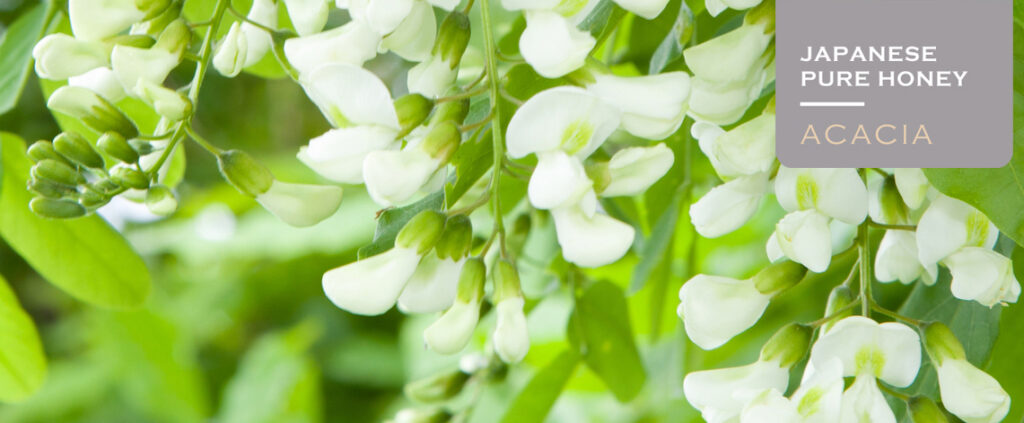
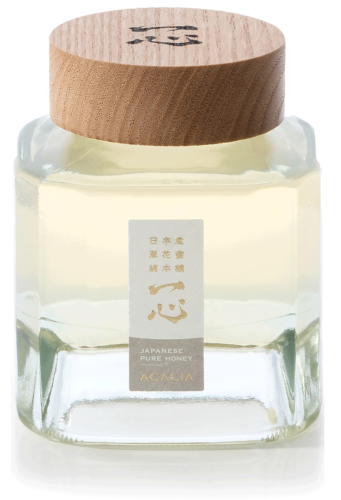
Queen of Honey
Acacia honey is called “Queen of Honey” and is the most beautiful and delicious honey. There is a saying that “look at the beekeeper and buy the honey” because the quality of honey is greatly influenced by the beekeeper’s approach to his/her work. In fact, we have carefully selected honey from more than a hundred beekeepers, including indirectly, based on the “quality” and “people” of the beekeepers. We carefully select our acacia honey by looking at the “quality” and “people” of the dozens of beekeepers we deal with, including those we deal with indirectly.
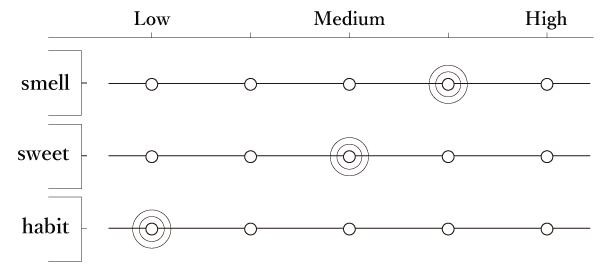
Our commitment to the ultimate honey
The quality of monofloral nectar depends greatly on the beekeeper’s attention to detail. The beekeeper’s attention to detail will determine the location of the hive for collecting honey. The beekeeper must know the environment in which the hive will be located, the bees’ activity area, the density of flowers, the flowering season, the period when the hive will not overlap with other plants, the scale of the hive, when and how many hives will be set up, etc. When and how many hives of what scale should be set up, when, and how many hives should be set up. The beekeeper’s judgment is tested in various phases of the process, including the timing of the cut-off, the selection of hive frames, and adjustments.
Acacia flowers for only one week, so if the flowering period overlaps with other plants, it is not suitable for our single-minded, single-flower nectar bees. If the flowering period overlaps with that of other plants, it is not suitable for our single-floral nectar. The more ultimate the nectar, the shorter the foraging period, and the more courage and patience the beekeeper must have. The more ultimate the nectar, the shorter the time for collecting the nectar. Special beekeepers spend long days and nights to develop a strain of gentle, hardworking bees in order to win the battle of the moment to obtain the ultimate nectar. The beekeeper must be patient and patient with the bees.
The Japanese monofloral nectar we offer is carefully selected in place and time, bees and hives, and above all, in the hearts and minds of our people. We carefully select the place, the time, the bees, the hives, and above all, the people. We offer only small quantities of this precious honey in order to provide it to the largest possible number of people.
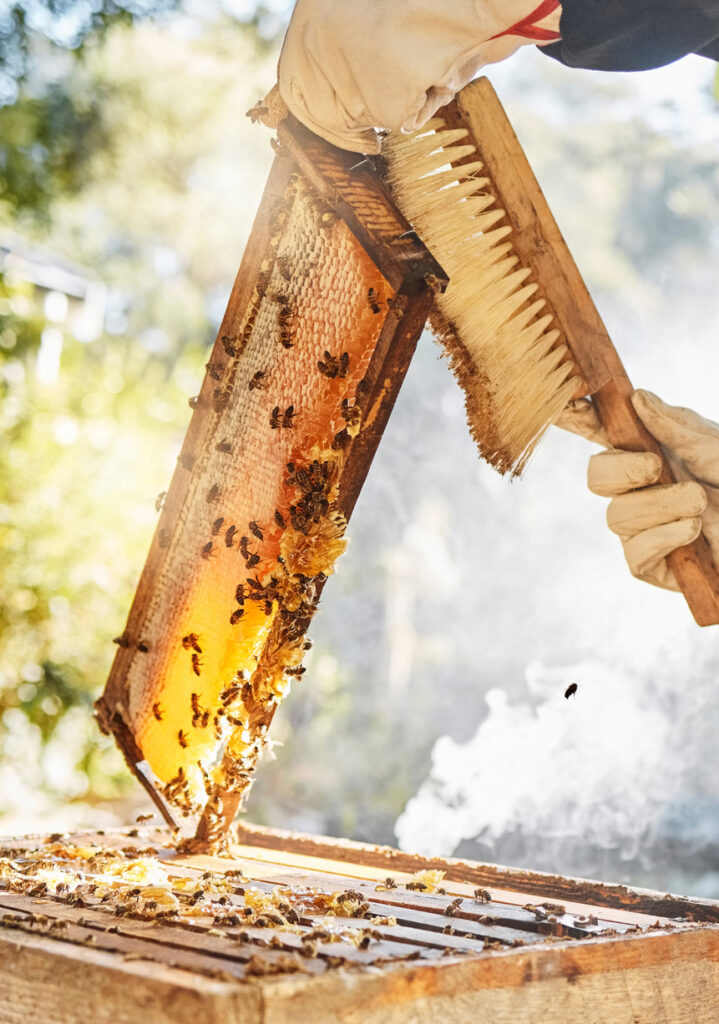
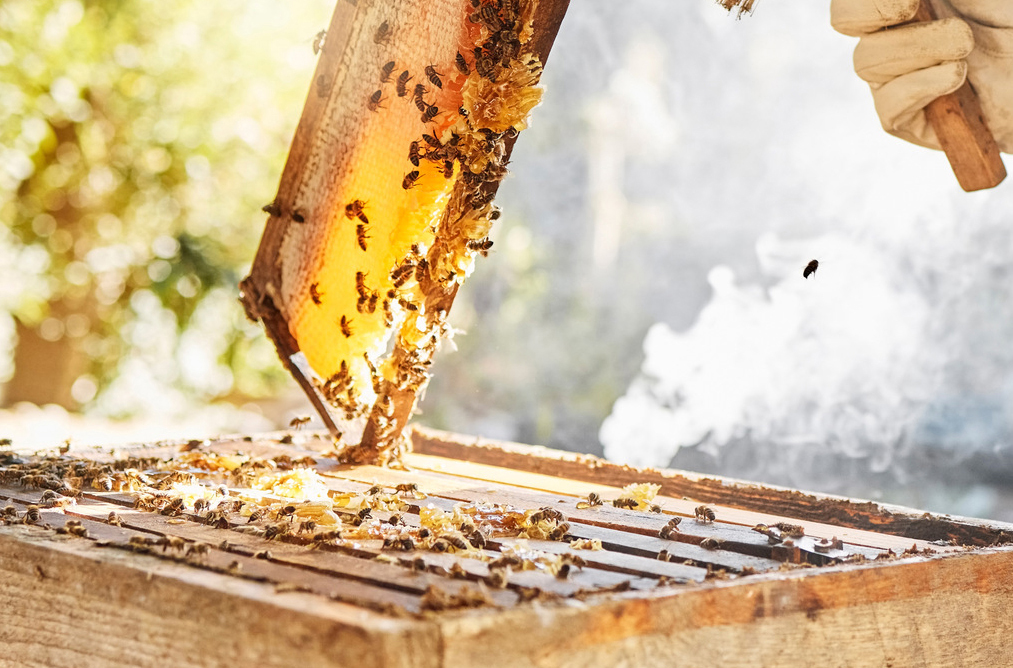
| Name of product | Japanese Natural Monofloral Honey |
|---|---|
| Ingredient name | Acacia honey (domestic) |
| Amount of contents | 200g |
| Expiration date | Within 2 years from delivery |
| Storage method | Store at room temperature out of direct sunlight |
| Seller | Marutoh Tokai Shoji Co. |
| Nutritional Information | (per 100g) Estimated value: Energy 329kcal Carbohydrate 81.9g Protein 0.3g Salt equivalent 0g Fat 0g *Analytical values may vary due to the nature of the product. |
The color may vary slightly depending on the natural conditions at the time of harvesting.
Please note that the color may vary slightly depending on the natural conditions at the time of honey collection.
Do not feed honey to infants under one year of age.



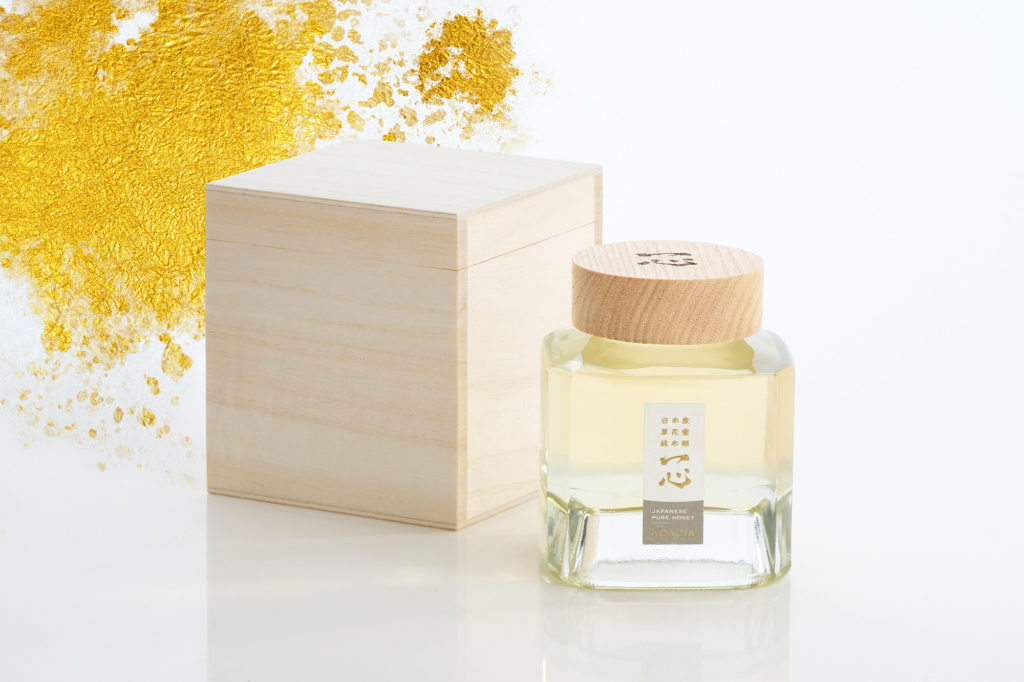
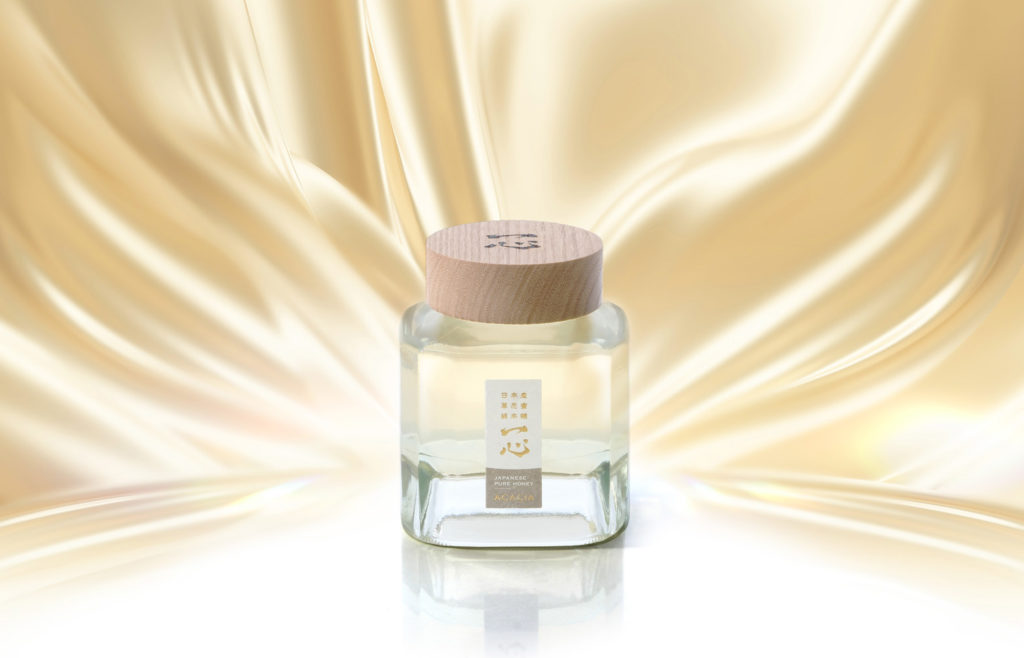
Japanese Monofloral Honey Isshin
Top Quality Japanese Monofloral Honey – Acacia – 200g
Packaged in a paulownia wood box with a certificate of guarantee
Noshi (gift wrapping paper) option available
Price: 11,000 yen (including tax and shipping)
Expected to arrive in winter 2025